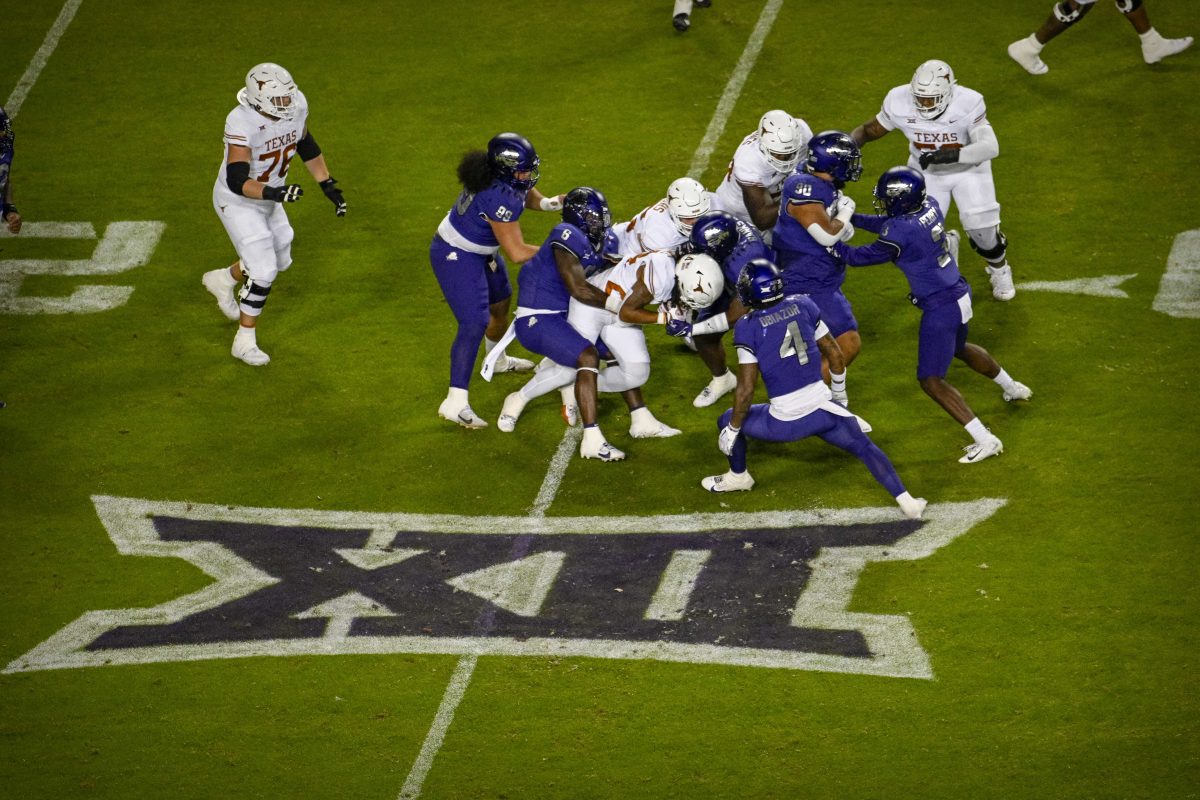HCS Roundtable: Should the Big 12 and ACC Have Agreed to New CFP Model?

On Friday, the College Football Playoff’s future became much clearer as all 10 FBS commissioners and Notre Dame’s athletic director agreed to finalize a new contract to keep the Playoff exclusively with ESPN.
The agreement, which ESPN reported on Thursday, is expected to usher in the 14-team playoff in 2026 and will be extremely beneficial to the Big Ten and SEC. While all conferences will see an increase in revenue thanks to the $7.8 billion mega-deal, the “Power Two” split a whopping 58% of the annual disbursements, leaving the other 100 or so FBS schools to split the remaining 42%.
It’s been reported that the Big Ten and SEC have flexed their muscles throughout the negotiation process, leaving the Big 12, ACC, and Group of Five schools with little to no choice but to agree to their terms.
Should the Big 12 and ACC have put their foot down and refused to let the financial gap between the Power Two and everyone else grow wider? Or did they do the right thing by keeping things cordial and falling in line?
Our staff shares their thoughts in this week’s Heartland College Sports Roundtable.
Pete Mundo
No.
Any deal that isn’t equitable for the Big 12 should not have been agreed to. The bullying from the SEC and Big Ten is ridiculous. If they are threatening to break off, let them. Their football product will be insulated and only exposed to their die-hard fans, while their basketball product, which is inferior to the Big 12, won’t get nearly as much attention.
This feels like a mob deal, and for my money, I would not want to be a part of admitting those conferences “deserve” more because of who they are. Now, if the College Football Playoff payouts are done based on how many wins a conference has in the CFP, that’s a conversation worth having. At least that’s merit-based. But that’s not the case right now. Count me out.
Bryan Clinton
Yes.
It’s hard to admit it, but the SEC and Big Ten have the best product to offer in college football. That’s only going to become even more apparent in 2024 when they inherit even more top-tier programs, with Texas and Oklahoma heading to the SEC and the Big Ten getting Oregon, Washington, USC, and UCLA.
Big-name programs have big-name money, and, like it or not, the Big Ten and SEC are where all the serious money is. According to USA Today’s most recent revenue study of public universities, 21 of the 25 most valuable schools, in terms of revenue, will reside in the Big Ten or SEC. In fact, the first non-Big Ten/SEC school doesn’t appear until No. 14 on the list (Virginia).
Is it fair that the Big 12 and ACC had to agree to a deal that makes them admit that they don’t provide the same level of product that the other conferences do, at least in terms of football? No, it’s not. However, the financial gap that has already existed for some time now would’ve only gotten wider had they risked it all and said “no.” At least now, they’ll get an estimated $400 million a year to distribute among their schools, which is a much bigger number than they were used to in the four-team model. It’s not ideal, and folks don’t have to like it, but that’s just the truth.
Matthew Postins
Yes.
The easy answer here is yes. Look — is it fair that two conferences are going to get more money per year out of the playoff than the rest? Of course, it isn’t. It’s patently not fair. But the Big Ten and the SEC know they have the power, and the Big 12 and ACC know they don’t. The latter two conferences also know that if the Big Ten and the SEC decide to spin off and do their own thing — and either don’t expand or carry them with them — then they are royally screwed financially. That extra $12 million per Big 12 school, as projected, will serve each of the members well.
At some point, I believe the playoff will become even more exclusive. In other words, there is no more automatic spot for the Group of 5, as an example. The Big 12 wants to position itself to make sure that, in the event, more changes are made, they aren’t left behind. For now, going along with this move is the right move.
Joe Tillery
Yes.
While I obviously don’t love the idea of the Big 12 getting a smaller revenue share than that of the SEC and Big Ten, this felt like the next right step for Brett Yormark to make. The Power Two would have likely left the NCAA, resulting in the start of college football World War Three, which likely would have been a massive, nationwide change across college athletics. By staying involved and agreeing to the CFP revenue split, the Big 12 is still in the conversation.
With an uncertain landscape ahead for every league outside of the Big Ten and the SEC, I do feel like Brett Yormark did the right thing in agreeing to the demands of other leagues. I also want to mention that the Big 12 staying a part of the future model is a great selling point to add teams through further realignment when another league inevitably bites the dust.
























